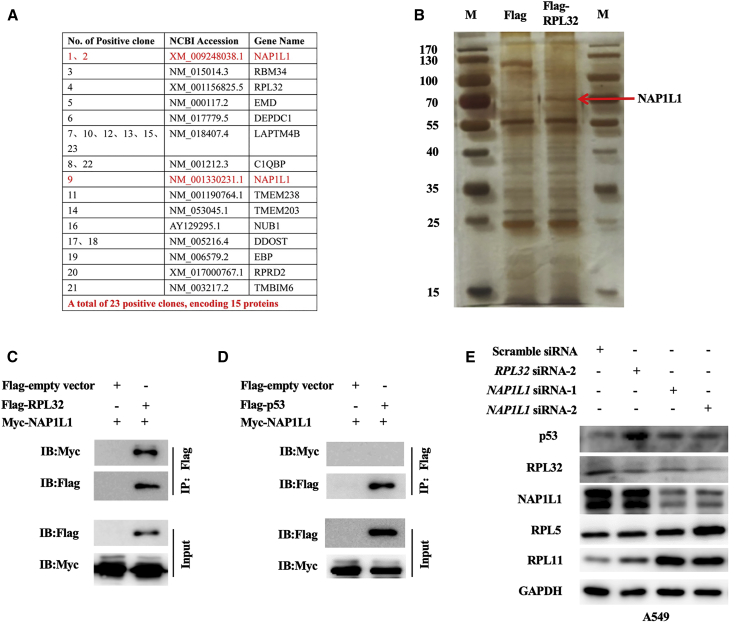(Mol Ther Nucleic Acids. 21, 75–85; May 21, 2020)
The authors regret to inform the readers that the GAPDH strip of Figure S4E was mistakenly cut from the left GAPDH strip in Figure 4C in the original published Figure S4E.
In addition, we found a typo in the second paragraph of the Results. The sentence “When the xenografted tumors were measurable, the mice were randomly divided into two groups that underwent peritumoral injection with 50 μL (80 μM) CpG-scrambled RNA or CpG-RPL32 siRNA, every 2 days for 5 consecutive times.” should read “When the xenografted tumors were measurable, the mice were randomly divided into three groups that underwent peritumoral injection with 50 μL PBS, 50 μL (80 mM) CpG-scrambled RNA, or CpG-RPL32 siRNA, every 2 days for 5 consecutive times.”
The authors apologize for any inconvenience caused and confirm that the corrections do not influence the results or main conclusions.
Figure S4.
NAP1L1 was screened and validated to interact with RPL32.



